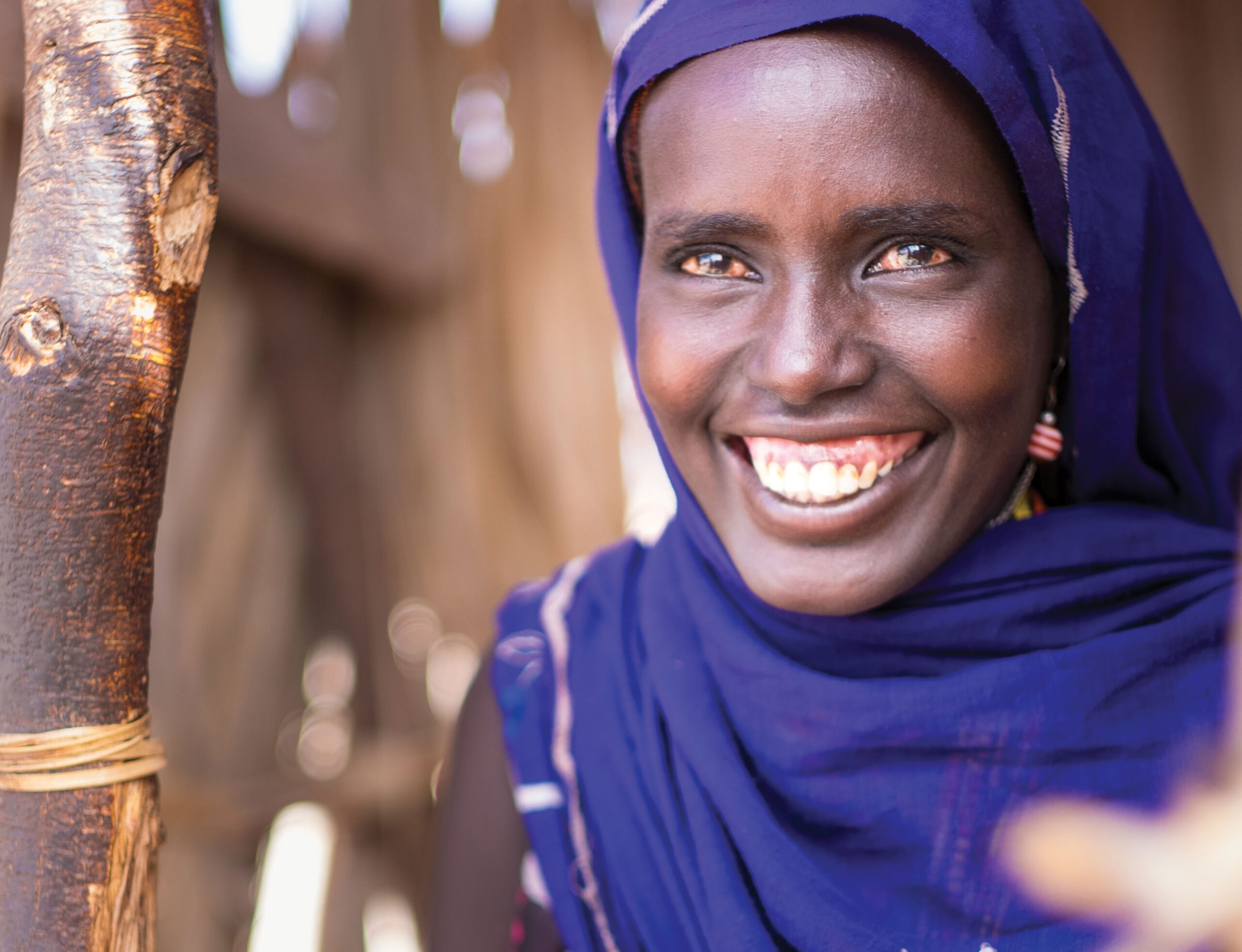REAP FOR REFUGEES
Refugees and displaced persons are among the world’s most vulnerable populations, often lacking access to basic human rights and struggling with food insecurity, limited access to sustainable livelihoods, and insecurity. By the end of last year, 110 million people worldwide were forcibly displaced from their homes due to persecution, conflict, violence, and extreme weather conditions. In fact sub-Sahara Africa hosts more than 26 percent (over 18 million) of the world’s refugees, and that population is only growing. In response to this urgent need, BOMA has adapted its successful standard REAP model to meet the unique challenges faced by refugees, displaced persons, returnees, and host communities in Uganda, Burkina Faso, and Cameroon, and Chad.

As one of the founding members of the Poverty Alleviation Coalition alongside UNHCR, we believe in the self-resiliency, economic and social inclusion of extreme poor refugee and host community members using the evidence-backed Graduation model. Guiding the coalition’s response, the approach combines social protection and development assistance to help extremely poor refugees and host communities to become self-reliant.
BOMA is working alongside IKEA Foundation, Smart Regional Consultants (SRC) and DanChurchAid (DCA) to launch the Livelihoods and Inclusion for Transformation program in Northern Kenya (LIFT NK). LIFT will catalyze opportunities for 15,600 women, youth, and refugees facing extreme poverty in Northern Kenya. LIFT focuses on women, youth, refugees, and displaced people, supporting them to launch and build 3,650 environmentally friendly businesses in Samburu and Turkana counties. LIFT is ultimately expected to benefit more than 93,000 people in Northern Kenya over two years.
BOMA, Caritas Switzerland (CACH), the Agency for Accelerated Regional Development (AFARD), and the International Union for Conservation of Nature (ICUN) are collaborating on a program called Street Children – Prevention through Sustainable Graduation from Poverty (PSGP) in the Yumbe District of West Nile, Uganda. This three-year multi-sectoral project aims to serve 500 households and adapt the graduation approach to address the needs of extremely poor refugee and host community households in the region. The program’s objectives include improving financial resilience, child protection, and natural resource management outcomes for the targeted households and communities in West Nile, Uganda. The program has enrolled 450 households since its inception, comprising 30 percent refugees and 70 percent members of the host community. Of these participants, 78 percent are female, while the remaining 22 percent are male in West Nile, Uganda.
Across the continent in Burkina Faso, BOMA is supporting Swiss Cartias, and local NGO, APIL, with a the “Projet de Graduation pour l’Autonomie et la Dignité des personnes Déplacées et leur integration au sein des Communautés Hôtes (GADICH).” This is a graduation project aiming to strengthen the resilience and socio-economic development of displaced people and host communities to allow them to become productive members of their host communities. So far, approximately 3,000 participants have been enrolled in Burkina Faso with an even proportion of IDPs and members of the host community represented. While 80 percent of the entrepreneurs in this program and women, 20 percent are men.
In January 2022, BOMA launched a similar program in Cameroon, in partnership with the Danish Refugee Council (DRC). The program targets the Adamaoua and Eastern regions of the country, with a focus on enhancing economic resilience and food security for refugees and host communities facing extreme poverty. The program aims to achieve this by providing savings and access to financial services, as well as livelihood opportunities and market inclusion. Life skills training and awareness raising will also be conducted to reinforce behavior change, social inclusion, and social cohesion. The program has already enrolled 1,200 participants, who have formed 866 businesses to date.
